2025 is shaping up to be a pivotal year for European defense, not only in policy and investment, but in how companies in the sector communicate.
Maria Urban, DefenseTech Communications Expert at PIABO Communications, shares how geopolitical developments, new financial frameworks, and shifting public perception are transforming the rules of communication for #DefenseTech players.
👉Strategic communication is becoming mission-critical
👉Trust is emerging as the key currency in DefenseTech branding
👉And the old “product-first” mindset is giving way to narratives about purpose, responsibility, and dialogue.
Strategic positioning in a highly visible sector
Defense is no longer a niche or purely Business-to-Government topic. Public awareness in Europe has increased significantly, and DefenseTech companies must now address diverse stakeholder groups, from political decision-makers and procurement offices to technology partners and society at large. “Communication needs to be highly targeted.”, Maria explains. “What matters to the Bundeswehr’s planning office is different from what matters to the public or technology and supply chain partners.”
Trust as a new currency
Especially in the defense sector, trust plays a key role. Companies are expected not only to deliver reliable technologies, but also to communicate their ethical frameworks and strategic purpose, without resorting to oversimplified transparency. “The more the public lens focuses on the defense sector, the more important it becomes to build trust through communication. However, building trust must not be mistaken for full transparency. Transparency is essential, but must be handled carefully in this field,” Maria notes. “Instead, what pays off is a proactive communication #strategy that anticipates critical questions and answers them with confidence, backed by a clear stance and core values.”
From industry niche to public dialogue
Defense has moved from its periphery to the center of public discourse. What was once seen as a closed-off, highly specialized sector is now actively discussed across political, media, and business circles due to the current geopolitical landscape. “You can even feel this change in the personal environment of employees at major defense companies because suddenly there’s more recognition for their work,” says Maria. This shift is also seen in public spheres like sport. “Companies like Rheinmetall are taking on more public roles, even sponsoring German football club Borussia Dortmund. Moreover, DefenseTech startups are openly telling their stories. New media outlets, such as Handelsblatt’s new defense newsletter or the Aerospace & Defence platform of the Vogel Media, signals how central this topic has become in public economic and policy debates.”
What defense brands need now
To succeed in this new public environment, companies must move beyond product-focused PR and define their broader role in society. Communication becomes the bridge between industry, politics, and public interest. “Trust bridges the gap between what we know and what feels unfamiliar,” Maria concludes. “And communication builds that bridge. When it’s done well, it’s not just informative, it tells a story that sticks.”
2025 will challenge DefenseTech companies to rethink how they show up in public. The ones who succeed won’t just build cutting-edge tech. Instead, they aim to foster trust, a clear sense of purpose, and a #reputation open to dialogue — to better engage the business-critical target groups that matter most.
Get in contact: maria.urban@piabo.net


